
Salvatore Accardo is an Italian violinist and conductor, who is known for his interpretations of the works of Niccolò Paganini.

Patrizia Ciofi is an Italian operatic coloratura soprano.

Stefan Milenkovich is a Serbian violinist.

Bruno Canino is an Italian classical pianist, harpsichordist and composer.

Adelaide di Borgogna, ossia Ottone, re d'Italia is a two-act opera composed by Gioachino Rossini to a libretto by Giovanni Schmidt. It was premièred at the Teatro Argentina in Rome on 27 December 1817.

Ivanhoé is an 1826 pastiche opera in three acts with music by Gioachino Rossini to a French-language libretto by Émile Deschamps and Gabriel-Gustave de Wailly, after Walter Scott's 1819 novel of the same name. The music was adapted, with the composer's permission, by the music-publisher Antonio Pacini from Rossini's operas, namely Semiramide, La Cenerentola, La gazza ladra, and Tancredi in order to introduce his music to Paris. An examination of the score shows that Pacini also used music from Bianca e Faliero, Armida, Maometto II, Aureliano in Palmira, Sigismondo, Torvaldo e Dorliska, Mosè in Egitto and an amount of newly composed music including fanfares and the gallop that was later to become famous from its inclusion in Guglielmo Tell. The work was premiered on 15 September 1826, at the Odéon Theatre.
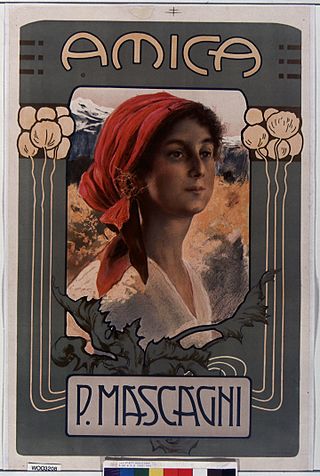
Amica is an opera in two acts by Pietro Mascagni, originally composed to a libretto by Paul Bérel. The only opera by Mascagni with a French libretto, it was an immediate success with both the audience and the critics on its opening night at the Théâtre du Casino in Monte-Carlo on 16 March 1905. Mascagni himself conducted the performance. The opera had its Italian premiere on 13 May 1905 at the Teatro Costanzi in Rome.
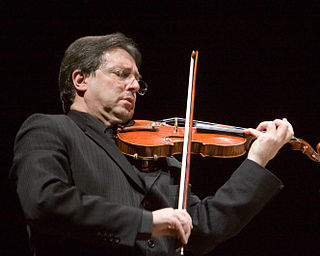
Franco Mezzena born 4 November 1953 in Trento, northern Italy, is an Italian violin virtuoso. He studied ten years with Salvatore Accardo.

Le astuzie femminili is a dramma giocoso in four acts by Domenico Cimarosa with an Italian libretto by Giuseppe Palomba. The opera buffa premiered at the Teatro dei Fiorentini in Naples, Italy, on 26 August 1794. The opera was subsequently performed in Barcelona in 1795, Lisbon in 1797, Vienna in 1799, Paris in 1802, and London in 1804, remaining popular during the first quarter of the nineteenth century. Although not performed often today, the opera is still occasionally revived and a number of recordings have been made.

Crispino e la comare o Il medico e la morte is an opera written collaboratively by Luigi Ricci and Federico Ricci with an Italian libretto by Francesco Maria Piave.

Il re is a novella or opera in one act and three scenes by composer Umberto Giordano to an Italian libretto by Giovacchino Forzano. The opera premiered at La Scala in Milan on 12 January 1929.

Alberto Zedda was an Italian conductor and musicologist whose specialty was the 19th-century Italian repertoire.

Sara Mingardo is an Italian classical contralto who has had an active international career in concerts and operas since the 1980s. Her complete recording of Anna in Hector Berlioz's Les Troyens won a Gramophone Award and both the Grammy Award for Best Opera Recording and the Grammy Award for Best Classical Album in 2002. Some of the other roles she has performed on stage or on disc include Andronico in Tamerlano, Mistress Quickly in Falstaff, Rosina in The Barber of Seville, and the title roles in Carmen, Giulio Cesare, Riccardo Primo, and Rinaldo. She has also recorded several Vivaldi cantatas, Bach cantatas, and such concert works as Mozart's Requiem, Rossini's Stabat Mater, and Vivaldi's Gloria among others.

Salvator Rosa is an opera seria in four acts composed by Antônio Carlos Gomes to a libretto in Italian by Antonio Ghislanzoni. It premiered at the Teatro Carlo Felice in Genoa on 21 March 1874. The plot is based on Eugène de Mirecourt's 1851 adventure novel, Masaniello, in turn loosely based on the lives of the Italian painter and poet, Salvator Rosa and Masaniello, a Neapolitan fisherman, who became leader of the 1647 revolt against the Spanish Habsburg rule in Naples.
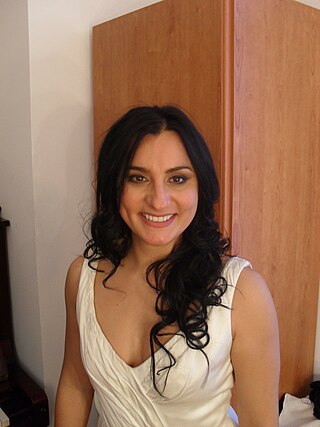
Carmela Remigio is an Italian operatic soprano.
Marco Rogliano is an Italian violinist.
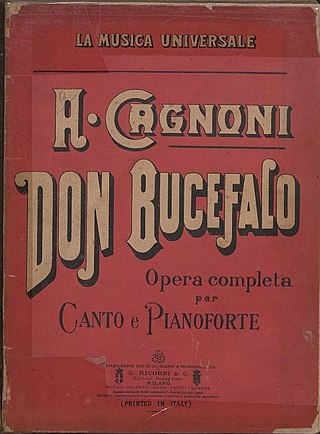
Don Bucefalo is an opera in three acts composed by Antonio Cagnoni to a libretto by Calisto Bassi. Bassi's libretto was based on the libretto by Giuseppe Palomba to Le cantatrici villane (1799) by Valentino Fioravanti. Don Bucefalo premiered on 28 June 1847 at the Milan Conservatory.

George Petrou is a Greek conductor, pianist and stage-director.
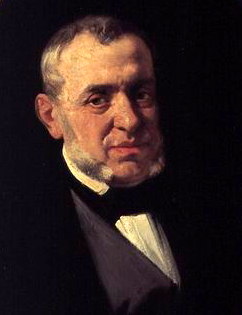
Francesca da Rimini is an 1831 opera by Saverio Mercadante to a libretto by Felice Romani based on Silvio Pellico's play which had already been set twice and ultimately was set by fifteen composers. It was to be premiered in Madrid in 1831, but the premiere was cancelled and the opera lost.

Anna Mombelli, born Marianna Mombelli, was an Italian opera singer who sang both mezzo-soprano and contralto roles. She is primarily known for having created the role of Siveno in Rossini's first opera Demetrio e Polibio in 1812.


















